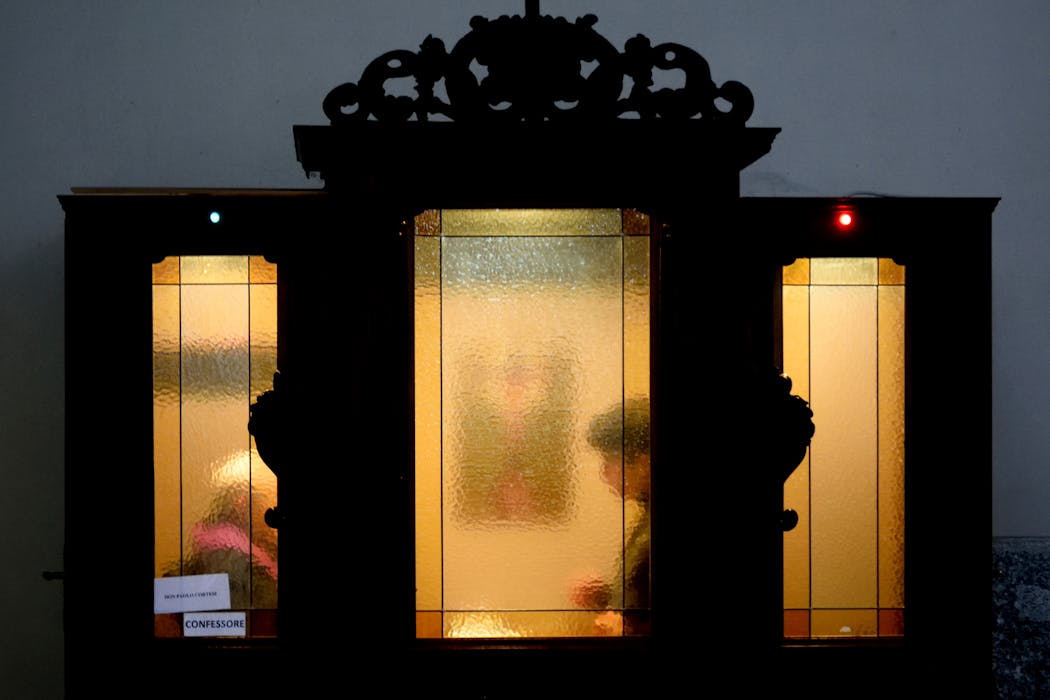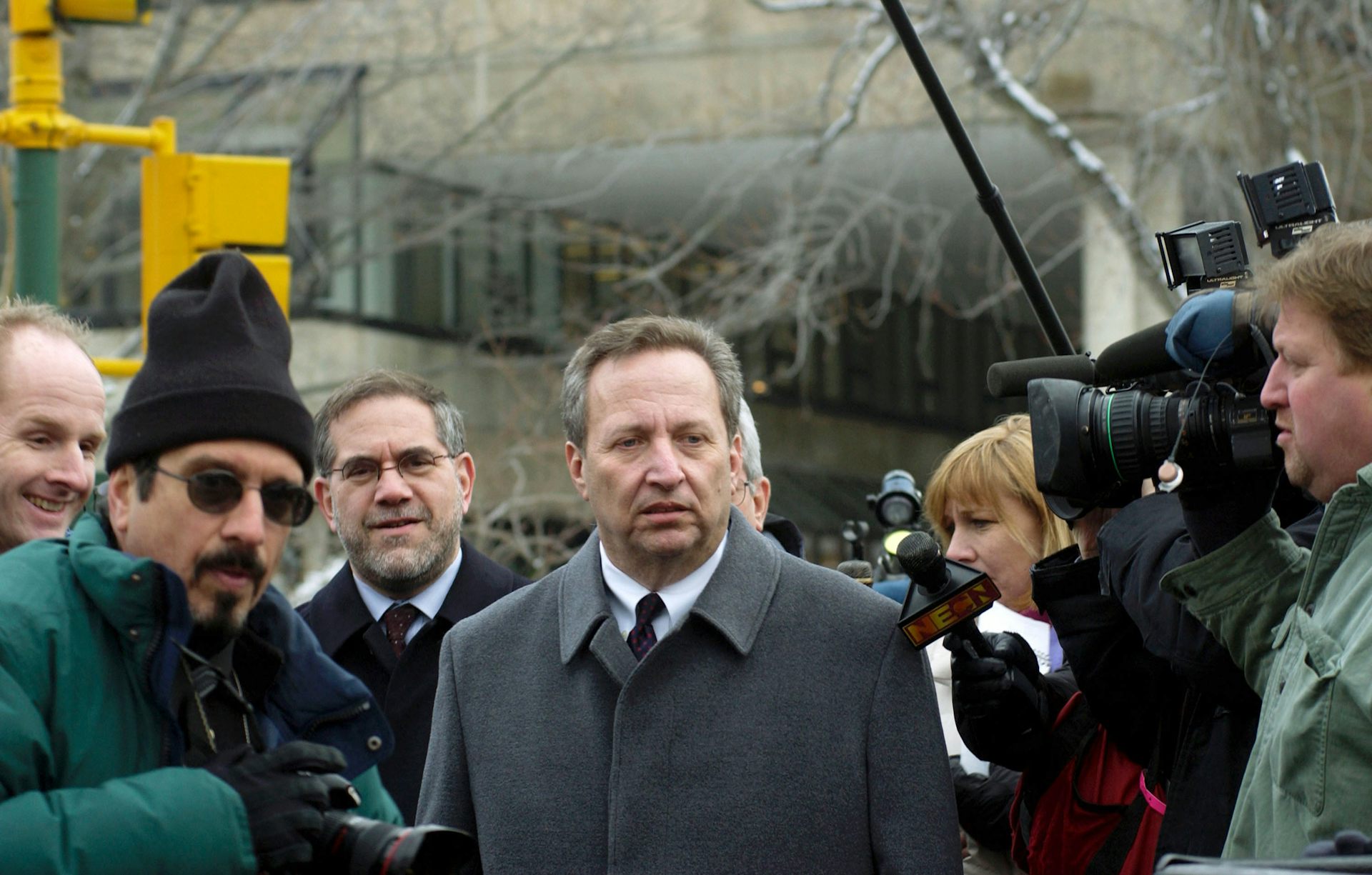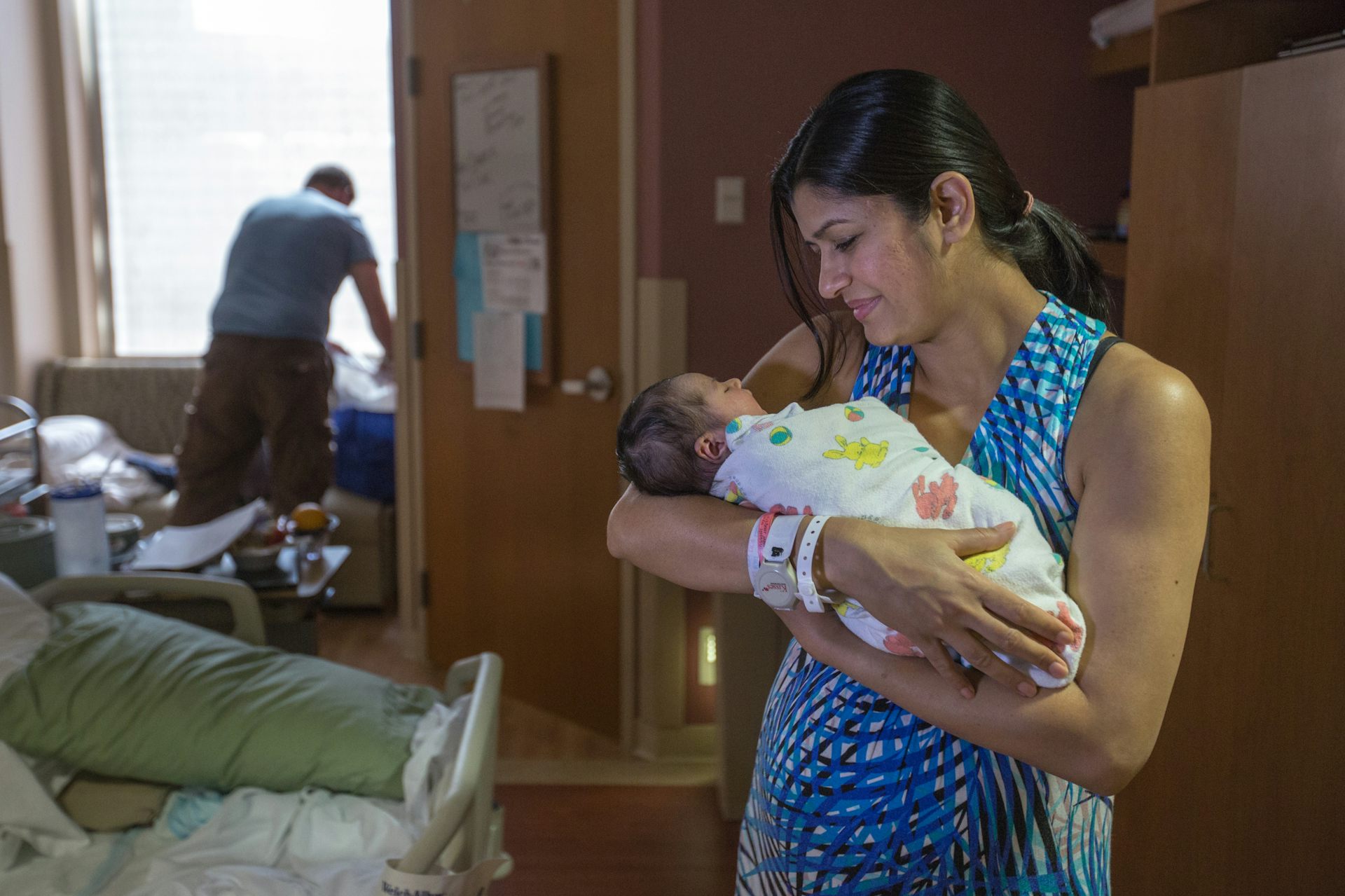Washington state settles controversy over child abuse law that tested the limits of ‘priest-penitent
Two groups of clergy challenged a Washington state law meant to help fight child abuse – but which could have required clergy to break the seal of confession.

For months, a Washington state bill generated controversy over two critical interests: protecting children from abuse and protecting the freedom of religion.
Signed by the governor in May 2025, SB 5375 designated clergy as mandatory reporters, requiring them to report child sexual abuse, physical abuse and neglect – even if they learned of the abuse during a confidential sacred rite.
Some faiths, including the Catholic Church and Eastern Orthodox churches, prohibit clergy from revealing information learned through a confession or sacrament. In the Catholic Church, there are no exceptions – and the penalty for disclosure is excommunication.
In mid-October, however, Washington state announced it would not enforce the mandatory reporting requirement for information learned during confidential rites. On Oct. 14, 2025, a federal court approved the state’s agreements with groups of Catholic and Orthodox clergy who had sued to block that part of the law, arguing it violated their religious freedom. The U.S. Department of Justice had also intervened, claiming the law discriminates against Catholics.
Reporting laws can be complicated by what is known as “legal privilege”: the rights granted to certain people, such as spouses or lawyers of suspects, to keep confidentiality by refusing to cooperate with an investigation. As a law professor, I have written often about clergy privilege, as well as other legal privileges. The attorney-client privilege is the oldest, dating to the 16th century, but the “priest-penitent privilege” has a long history as well.
US landscape
It was not until the 1960s that U.S. states began using mandatory reporting laws to protect children from abuse. Some laws apply to any person who learns of abuse. Others specifically mention categories of people, such as nurses and teachers.

Today, a majority of states require religious personnel to report suspected child abuse to law enforcement. However, most have an exemption for clergy who learn about abuse during a rite or prayer.
Several states do not have such an exemption. However, the text of their laws do not specifically mention religious leaders, which may be why they did not provoke as much controversy as Washington’s bill. For example, North Carolina requires “any person” who suspects abuse to report it.
Before SB 5375, Washington excluded clergy entirely from mandatory reporting requirements that apply to many other professionals, such as medical professionals, therapists and school personnel.
Now, under the October agreements filed in court, clergy are included in the list of mandatory reporters, but they are not required to report anything they learn about during a confession or sacred rite. The Vatican also instructs bishops to report abuse by priests, deacons and prelates to civil authorities.
2 key issues
There are two issues at play in clergy reporting laws.
One is whether clergy must take the initiative to report abuse that they learn about through their professional duties.
The other is whether clergy members have an evidentiary privilege – that is, the right to refuse to testify in court, or to answer questions during investigations, in order to protect their parishioners’ privacy.
Although mandatory reporting and clergy privilege are separate issues, both may apply in particular cases.
In 2021, for example, three children sued officials in the Church of Jesus Christ of Latter-day Saints for its failure to report their father’s abuse to authorities. The children ultimately lost their negligence case against the church because, although Arizona had a mandatory reporting statute, it also has an exception for information learned through confession or other confidential communication.
Washington state recognizes a “priest-penitent privilege.” Therefore, a priest who hears about abuse during confession may refuse to divulge what he’s heard if called into a legal proceeding. Originally, however, Washington’s new law would have required clergy to make an initial report to law enforcement, breaking the “seal of confession” – but they could have refused to cooperate with the resulting investigation.
Now, under the stipulations, clergy do not need to make an initial report if they learn of abuse through a confidential rite such as confession. In contrast, other individuals who have a legal privilege under Washington state law – for example, a spousal privilege or a physician privilege – must still report in the event of child abuse.

History of privilege
Under English law, the origin of most early American law, the “minister’s privilege,” as it was called, was not recognized after the Protestant Reformation of the 16th century.
In the U.S., a clergy privilege was first recognized in 1813. In People v. Philips, a Catholic priest in New York was summoned to testify about the return of some stolen jewelry – which apparently he required a parishioner to do, after hearing about the theft during confession. The court reasoned that requiring the priest to testify about what the parishioner revealed would violate his religious liberty.
Four years later, in another New York case, People v. Smith, the court found that a minister did not have grounds for a privilege because, as a Protestant, he was not bound by the same “seal of confession” rules as Catholic priests. In 1828, the New York Legislature passed a statute broadening the privilege to include all ministers and priests.
The general theory of all testimonial privileges is that it protects confidential communications that society wishes to foster. Attorney-client privilege, for example, exists so that the client may receive the best advice. The benefit of a privilege – the right to legal representation or the right to the free exercise of religion – is considered more important than society’s quest for truth.
There is a legal maxim that “the public has a right to every man’s evidence.” Privileges are an exception to this rule and thus are narrowly applied by courts.
In the United States, 1 in 4 children experience child abuse or neglect. If society believes that information about child abuse, even if disclosed during a religious rite, is more important than shielding that information, then the clergy privilege should be eliminated or weakened in such cases.
Religious freedom is a core constitutional guarantee. The question is how society should balance these two important interests.
Ann M Murphy does not work for, consult, own shares in or receive funding from any company or organization that would benefit from this article, and has disclosed no relevant affiliations beyond their academic appointment.
Read These Next
Cuba’s speedboat shootout recalls long history of exile groups engaged in covert ops aimed at regime
From the 1960s onward, dissident Cubans in exile have sought to undermine the government in Havana −…
Former Harvard president Summers’ soft landing after Epstein revelations is case study of economics’
Despite repeated calls for the university to revoke his tenure, the economist held onto his teaching…
Will AI accelerate or undermine the way humans have always innovated?
An anthropologist’s new book lays out the formula for human innovation, from stone tools to supercomputers.…





